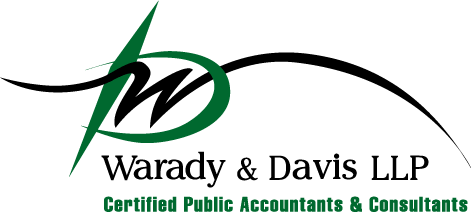If you own or manage your own business, you’re probably busy monitoring operations and dealing with everyday problems. But there are a few things that you should make time to do every year. These are important for your long term business and personal success.
1. Review your business tax strategy.
A month or so after you’ve filed your tax return; make an appointment with your tax advisor. Go over your return together and identify opportunities for tax savings. Question everything, starting with whether you’re using the right form of business entity. Ask about recent changes in the tax code and how they might benefit your business. Make your advisor a “partner” in your business strategy.
2. Update succession planning for your business.
Review your succession planning annually. You should have a specific plan for each key manager position, including yourself. Be prepared for a short-term absence or a permanent vacancy. Your plan might mean promoting from within or recruiting externally. An up-to-date plan can be invaluable if you have an unexpected vacancy.
3. Review and update your personal estate planning.
If you’re a business owner, your company is likely to be a significant part of your estate. A good estate plan is essential if you hope to pass it on to your heirs. But your company, your personal circumstances, and the tax laws are continually changing. You should take time each year to make sure your plans are current.
4. Review Your Information Technology Usage and Needs.
Is your computer system giving you the information you need to run your business? Are your hardware and systems up-to-date and secure? Who do you turn to when you have a technology problem? Today, technology is essential to any businesses’ success. At a minimum, on an annual basis, you and your IT staff or outside advisors should review your in place technology – hardware, software and support – to identify areas that need to be addressed to maximize business performance.
5. Review Your Internal Controls.
Although most companies have some form of internal controls to prevent the misuse or theft of company assets, fraud still costs American businesses billions annually. It is essential that sound internal controls be implemented to safeguard your most vulnerable and liquid assets such as cash, accounts receivable, inventory, etc. Review your controls and make sure they are followed and monitored.
6. Review your business banking relationships.
Annually, you should go over your cash balances and banking relationships with your controller or CFO. Then both of you should meet with your banker. Ask about new products or services that could help your company. Address any service concerns or problems you might have had. Look for ways to reduce idle cash, boost interest earned, and improve cash flows.
7. Review your business insurance coverage.
Don’t just automatically write a check to renew your insurance policies when they come due. Instead, you should sit down with your insurance agent every year. Review your business operations, focusing on any changes. Discuss types of risk that could arise. Ask about new developments in business insurance. Use your agent’s expertise to identify risk areas and suggest suitable coverage.
These are just some of business planning strategies to consider for 2016. Please contact us or your tax advisor for more details.
If you have any questions , as always, please contact your Warady & Davis LLP advisor at (847) 267-9600.
Legal Notice: The materials communicated in this transmission are for informational purposes only and not for the purpose of providing accounting, legal or investment advice. You should contact your accountant or advisor to obtain advice with respect to any particular issue or problem. Use of and access to this Web site or any of the e-mail links contained within the site do not create an accountant-client relationship between Warady & Davis and the user or browser. You should not act upon any such information without first seeking qualified professional counsel on your specific matter. Any accounting, business or tax advice contained in this communication is not a substitute for a formal opinion, nor is it sufficient to avoid tax-related penalties. If desired, Warady & Davis would be pleased to perform the requisite research and provide you with a detailed written analysis. Such an engagement may be the subject of a separate engagement letter that would define the scope and limits of the desired consultation services. ©2017
